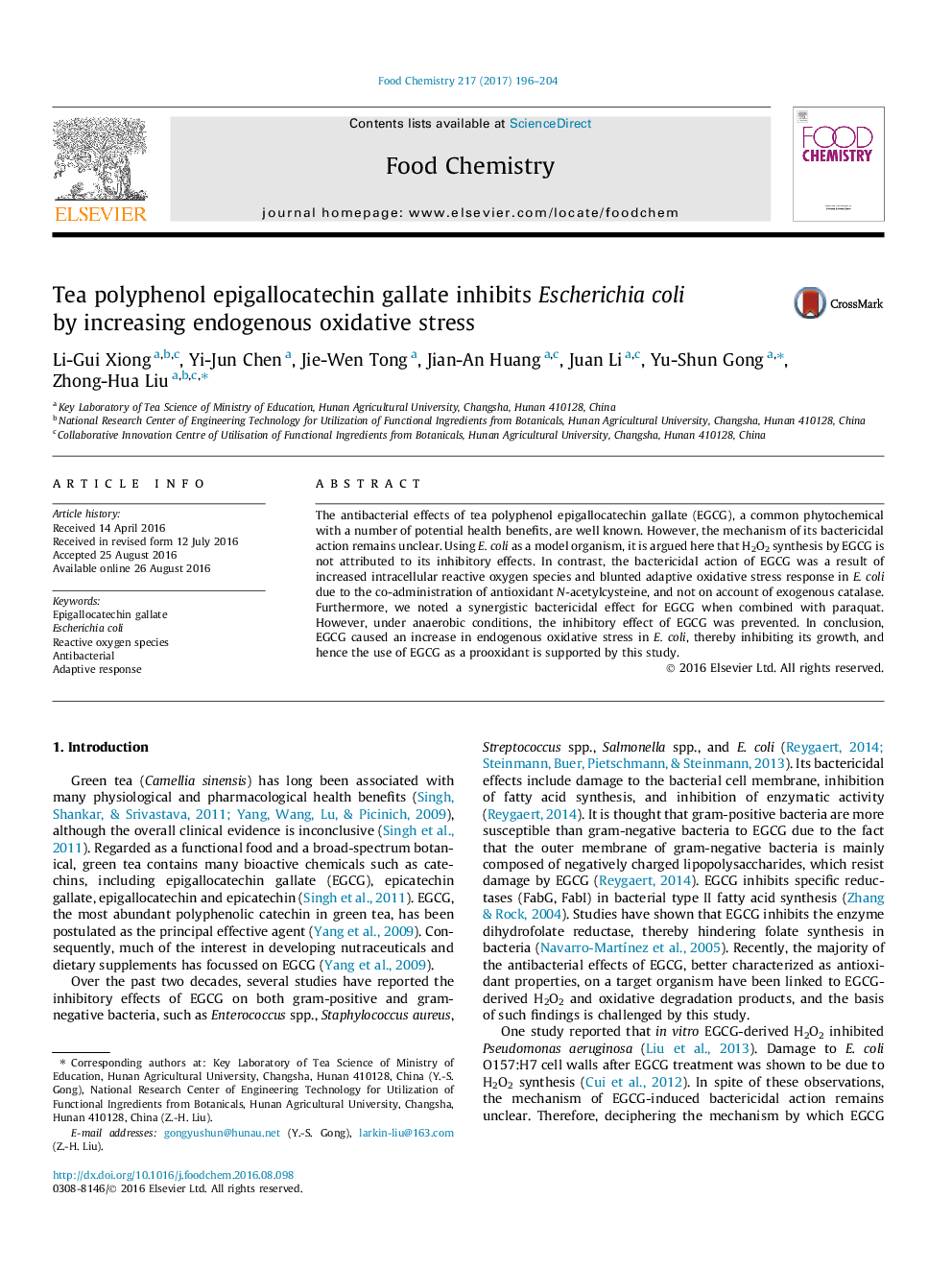| کد مقاله | کد نشریه | سال انتشار | مقاله انگلیسی | نسخه تمام متن |
|---|---|---|---|---|
| 1184748 | 1492075 | 2017 | 9 صفحه PDF | دانلود رایگان |
• Inhibition of bacterial growth by EGCG is not attributed to its H2O2 production.
• EGCG increase intracellular ROS and induce adaptive oxidative stress response.
• Inhibition of bacterial growth by EGCG was blunted by NAC.
• EGCG increased bacterial lethality of paraquat with synergistic effect.
The antibacterial effects of tea polyphenol epigallocatechin gallate (EGCG), a common phytochemical with a number of potential health benefits, are well known. However, the mechanism of its bactericidal action remains unclear. Using E. coli as a model organism, it is argued here that H2O2 synthesis by EGCG is not attributed to its inhibitory effects. In contrast, the bactericidal action of EGCG was a result of increased intracellular reactive oxygen species and blunted adaptive oxidative stress response in E. coli due to the co-administration of antioxidant N-acetylcysteine, and not on account of exogenous catalase. Furthermore, we noted a synergistic bactericidal effect for EGCG when combined with paraquat. However, under anaerobic conditions, the inhibitory effect of EGCG was prevented. In conclusion, EGCG caused an increase in endogenous oxidative stress in E. coli, thereby inhibiting its growth, and hence the use of EGCG as a prooxidant is supported by this study.
Journal: Food Chemistry - Volume 217, 15 February 2017, Pages 196–204
